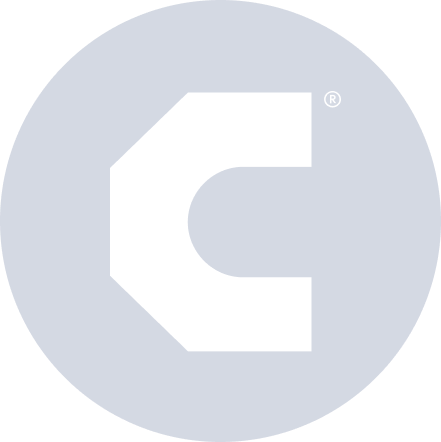Cromwell Transforms Product Discovery with Constructor

About Cromwell Tools
Cromwell is one of the UK's largest suppliers of industrial tools, maintenance supplies, and services for businesses.
With over 50 years of experience, they provide more than 750,000 industrial and trade products to sectors including manufacturing, engineering, and facilities management. As a trusted partner to businesses across the UK and internationally, Cromwell combines extensive product knowledge with value-added services to help their customers improve efficiency and productivity.


With over 50 years of experience, they provide more than 750,000 industrial and trade products to sectors including manufacturing, engineering, and facilities management. As a trusted partner to businesses across the UK and internationally, Cromwell combines extensive product knowledge with value-added services to help their customers improve efficiency and productivity.
The Challenge
Refined queries with generic results
Cromwell, a leading supplier of industrial tools and supplies, underwent a digital transformation that merged their B2C and B2B websites. During this transition, they recognized that effective product discovery would be critical for customer satisfaction and business success.

Despite investing in their in-house Elastic search solution, customer feedback consistently highlighted frustrations with the search experience. The core issue was counterintuitive: as customers tried to be more specific with their search terms to narrow results, they actually received more — and less relevant — results.
"Our customers' way of refining was to add more search terms," explains Jamie Powell, Head of Digital Products and User Experience at Cromwell. "But more terms meant the search was hitting more product records and returning more results, which was counterproductive."
For example, a customer searching for "blue tape" might then try "blue masking tape 10mm" to narrow results, but would instead receive items that were 10mm and not tape (such as a 10mm spanner wrench) — the opposite of what they intended.
This disconnect was damaging customer trust. "If you don't know the difference between a spanner and tape, why should I buy from you?" was the sentiment Cromwell was battling.
The Challenge
Managing search challenges with manual processes
To compensate for these suboptimal results, Cromwell was forced to implement a resource-intensive workaround strategy. The company dedicated two full-time searchandisers solely to managing and improving their search functionality.
These searchandisers spent their days monitoring and analyzing high-volume search terms, then making subjective judgments about result quality. "It was a very manual process," Powell explains. "They would perform the search themselves and make a judgment call about relevancy, rather than using a data-driven approach."
When problematic searches were identified, the team would implement manual overrides and redirects. Often, this meant directing customers away from search results entirely and toward category pages with pre-applied filters — effectively pushing users into a browse journey rather than fixing the underlying search issues.


To compensate for these suboptimal results, Cromwell was forced to implement a resource-intensive workaround strategy. The company dedicated two full-time searchandisers solely to managing and improving their search functionality.
These searchandisers spent their days monitoring and analyzing high-volume search terms, then making subjective judgments about result quality. "It was a very manual process," Powell explains. "They would perform the search themselves and make a judgment call about relevancy, rather than using a data-driven approach."
When problematic searches were identified, the team would implement manual overrides and redirects. Often, this meant directing customers away from search results entirely and toward category pages with pre-applied filters — effectively pushing users into a browse journey rather than fixing the underlying search issues.
The Challenge
Balancing Relevancy
Another significant challenge was balancing relevancy against business priorities. The existing system would prioritize products with higher sales volumes, regardless of their relevance to the specific query. "Certain products would be higher on the list due to the volume they sold, but that doesn't mean they'd be most relevant to the query," says Powell. This further frustrated customers who would then try to refine their searches, triggering even more manual interventions.
This labor-intensive approach created a vicious cycle that wasn't sustainable. "We found that we were spending too much time trying to fix searches," Powell notes. In some instances, customers would have an easier time searching Google for Cromwell results versus the Cromwell site itself — a clear sign that immediate action was needed.

The Solution
The Search for a Better Solution

Facing mounting evidence that their search capabilities were hampering customer experience and business growth, Cromwell began evaluating alternatives. The first decision point was whether to enhance their existing in-house solution or partner with a specialized vendor.
"It was primarily a buy versus build consideration," Powell explains. "We started by talking to Elastic about improving our current implementation, and also explored options with AWS." Interestingly, during these consultations, AWS actually suggested looking at Constructor as a potential solution.
Cromwell proceeded with a formal RFP process, inviting several search vendors to demonstrate their capabilities. Throughout this evaluation, the limitations of the in-house approach became increasingly clear.
"We quickly realized that building internally would cost too much in both financial terms and time," says Powell. "We didn't feel like we'd be solving new problems and felt it would take us years to build the feature set customers expected us to have."
In contrast, partnering with a specialized vendor offered the opportunity to leverage existing expertise and accelerate their journey. "A vendor has already gone through these challenges and built solutions. We could leverage their experience rather than reinventing the wheel," Powell notes.

Facing mounting evidence that their search capabilities were hampering customer experience and business growth, Cromwell began evaluating alternatives. The first decision point was whether to enhance their existing in-house solution or partner with a specialized vendor.
"It was primarily a buy versus build consideration," Powell explains. "We started by talking to Elastic about improving our current implementation, and also explored options with AWS." Interestingly, during these consultations, AWS actually suggested looking at Constructor as a potential solution.
Cromwell proceeded with a formal RFP process, inviting several search vendors to demonstrate their capabilities. Throughout this evaluation, the limitations of the in-house approach became increasingly clear.
"We quickly realized that building internally would cost too much in both financial terms and time," says Powell. "We didn't feel like we'd be solving new problems and felt it would take us years to build the feature set customers expected us to have."
In contrast, partnering with a specialized vendor offered the opportunity to leverage existing expertise and accelerate their journey. "A vendor has already gone through these challenges and built solutions. We could leverage their experience rather than reinventing the wheel," Powell notes.
As the evaluation progressed, Constructor emerged as the clear frontrunner for several compelling reasons.
First, Constructor's approach to analyzing customer behavior stood out. "The concept of attractiveness and analyzing customer behavior was unique," Powell explains. "Constructor doesn't just understand the search terms, but the intent behind those terms, and promotes the right results on a one-to-one basis versus showing the same results for everybody."
Second, Cromwell was looking for more than just a technology provider — they wanted a strategic partner. "We wanted a partnership that was going to help us continually learn and continually grow and understand our customers and how they use search, always getting the best out of it," says Powell.
Third, Constructor's architecture aligned perfectly with Cromwell's technology strategy. "We have a strong affinity for composable architecture," Powell explains. "We were confident Constructor would work seamlessly within our current stack and future technology roadmap.
This combination of advanced technology, partnership approach, and architectural compatibility made Constructor the ideal choice to address Cromwell's search challenges.
Our Solution
Validation through the Proof Schedule™
Constructor's Proof Schedule™ process allowed Cromwell to see concrete evidence of improved search results before making a commitment. By implementing Constructor's tracking beacon during the RFP process, Cromwell gained:
-
Clear visibility into how Constructor's results differed from their current solution
-
Concrete metrics to build a compelling business case
-
Before-and-after results demonstrating the enhanced customer experience
"We could already see how the results were different from what we were currently presenting. It was enough for us to see that we were tapping into something that would make an immediate impact on how our search worked," Powell explains.
Beyond the technical improvements, Cromwell appreciated Constructor's user-friendly interface: "We could see from the Constructor interface that it was going to make it easier for our merchandising and marketing people to understand how search is being used and what tools they have available to them to try out new strategies... just easier to get non-technical people on board."
The Results
Smooth Implementation and Immediate Results
The implementation process reinforced Cromwell's confidence in Constructor. With comprehensive documentation and direct access to Constructor's engineering team, Cromwell's technical team was able to integrate the solution efficiently.
"Constructor quickly became an extension of our internal team," Powell notes. The composable, API-first approach enabled Cromwell to implement incrementally without a disruptive "big bang" switchover, allowing for gradual rollout and testing.
The impact was immediate and substantial:
Moving Forward
What's Next for Cromwell
Cromwell is now focused on building upon this foundation to drive continued innovation.
"The implementation of Constructor isn't the end of our journey — it's really just the beginning," Powell explains. They're working closely with Constructor's data science team on a continuous optimization plan, analyzing search patterns and customer behavior to identify opportunities for further refinement.
Cromwell is particularly excited about the potential of natural language and conversational search capabilities. "Natural language, conversational search is a huge opportunity for us," Powell notes. In the industrial tools industry, customers often approach product selection from a job-based perspective: "I'm doing this job, what do I need?"
Constructor's AI Shopping Assistant capabilities align perfectly with this vision. Powell envisions a future where customers can ask questions like "What tools do I need for installing industrial shelving?" and receive not just product recommendations, but also helpful context about specifications and best uses.
"People are rapidly changing how they search for products," Powell observes. "With Constructor, we feel well-positioned to evolve alongside these changing patterns and continue delivering exceptional experiences for our customers, no matter how their search behaviors evolve in the future."


Cromwell is now focused on building upon this foundation to drive continued innovation.
"The implementation of Constructor isn't the end of our journey — it's really just the beginning," Powell explains. They're working closely with Constructor's data science team on a continuous optimization plan, analyzing search patterns and customer behavior to identify opportunities for further refinement.
Cromwell is particularly excited about the potential of natural language and conversational search capabilities. "Natural language, conversational search is a huge opportunity for us," Powell notes. In the industrial tools industry, customers often approach product selection from a job-based perspective: "I'm doing this job, what do I need?"
Constructor's AI Shopping Assistant capabilities align perfectly with this vision. Powell envisions a future where customers can ask questions like "What tools do I need for installing industrial shelving?" and receive not just product recommendations, but also helpful context about specifications and best uses.
"People are rapidly changing how they search for products," Powell observes. "With Constructor, we feel well-positioned to evolve alongside these changing patterns and continue delivering exceptional experiences for our customers, no matter how their search behaviors evolve in the future."